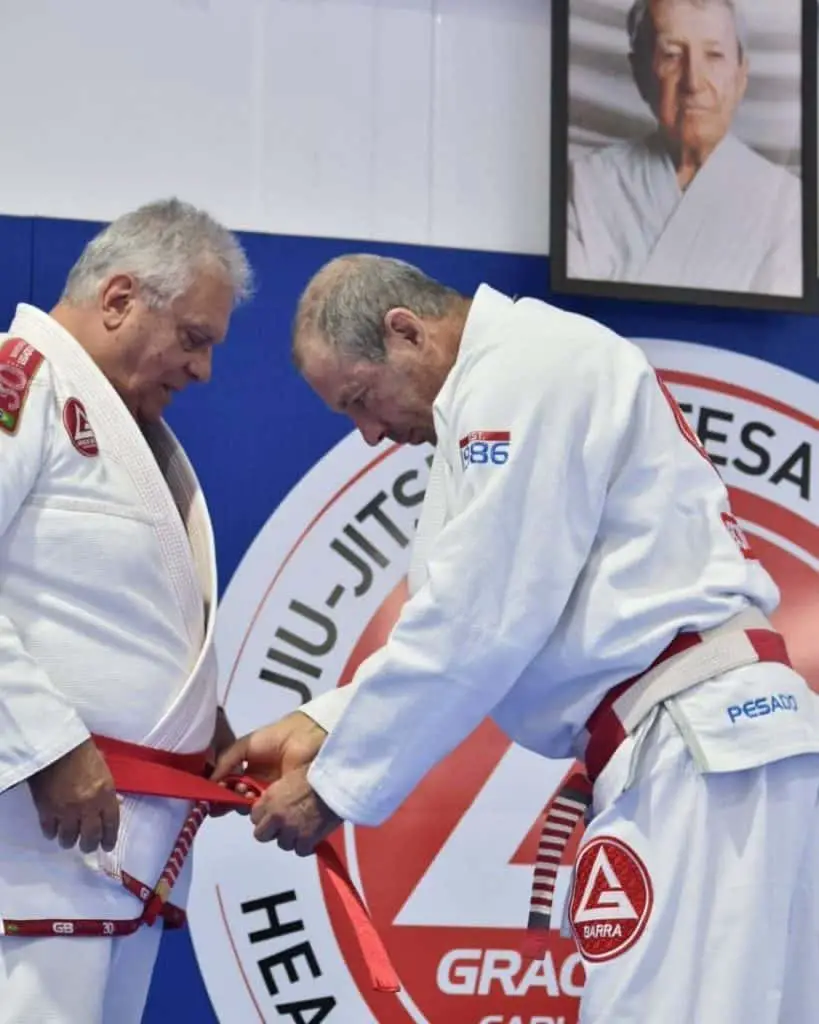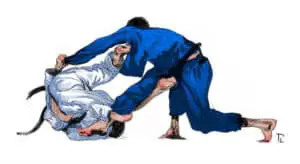
BJJ, like many martial arts, has belts. Each belt represents a certain skill level. In BJJ beginners start with a white belt and progress through blue, purple, and brown belt before finally achieving the mastery rank of black belt. How do BJJ athletes achieve these belts, what are the requirements?
Are There Belt Tests In BJJ?
Belts tests are uncommon in BJJ, it is estimated less than 10% of academies use tests to grade their students. The vast majority of instructors promote their students informally and hand them their new belts when they feel they are ready based on observing them in training and competition.
If you have goals of earning a blue or even a black belt in BJJ don’t worry you won’t have to take an exam, memorize thousands of names of techniques and perform a 6-hour long demonstration of all the moves you know like in some other martial arts. In BJJ if your coach thinks you possess the skill representative of the next belt then they will promote you.
The way gradings typically work in BJJ is that your coach is always observing your development. They will keep a close watch on you and see how your BJJ knowledge is possessing. Once you achieve a level of skill that they are satisfied with they will make an announcement before the class and promote you to the next belt. It really is simple as that.
There is no special requirement to receive belts in BJJ. Your instructor has total power over who they want to promote and when.
As long as your instructor is a higher belt than you they can promote you to a belt one lower than their current belt. For example, a purple belt can promote a student to blue belt but not to purple belt or higher. For a BJJ instructor to promote a student to black belt they must have been a black belt for at least three years and have a stripe on their belt.
While the above process is the most typical one a small percentage of BJJ schools have borrowed from more traditional martial arts and incorporated formal gradings into their process. During these gradings, students will typically be asked to demonstrate a number of techniques on an unresisting partner and then they will spar a couple of rounds to test their skills against a resisting opponent.
At the end of the grading, the BJJ instructor will decide if they have enough skill to warrant being promoted to the next belt. BJJ schools that do formal gradings will often hold them a few times a year and students who meet the requirements can ask to attend. There is usually no written or academic component to the grading, it nearly always is a purely practical and physical demonstration.
What was once rare but is becoming increasingly common in certain BJJ academies is awarding belts based on attendance. Some BJJ schools will hand you a blue belt as long as you have attended 100 or 150 classes, while others will give you your belt as long as you have been a member for over 1 year.
Giving out BJJ belts based on attendance is frowned upon by many BJJ students who view the belts as cheap. Most people train BJJ because of its effectiveness and think only students who are skilled should be promoted to colored belts.
Schools that have implemented the participation belts do so to retain students. Many students who spend years at white belt often leave the sport and look for a new hobby after becoming frustrated. By handing out blue belts after a student has been a member for 12 to 18 months gyms can significantly increase their retention rate.
One interesting grading ritual that I wish BJJ would borrow from Judo is Batsugun. In Batsugun any athlete can attempt to earn a Judo black belt by defeating 6 black or brown belts in a row with no rest. The athlete must defeat all 6 by ippon from a throw. To make it even more difficult Batsugun is also an open weight competition.
BJJ could implement a similar process whereby any BJJ student could earn a black belt by submitting 6 black belts in a row with no rest. It would be extremely difficult to submit 6 black belts in a row but it would be an amazing feeling to earn your black belt in this manner. Black belts who earned it via Batsugun would get extra respect within the Jiu Jitsu community.
